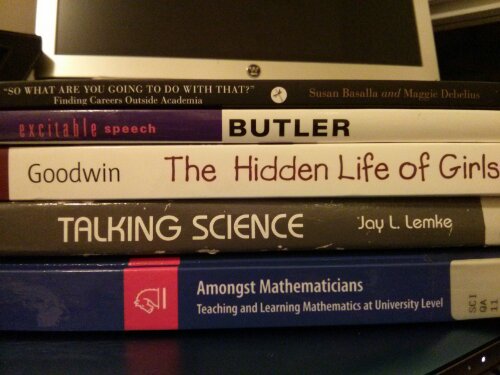…it has never been in my power to study anything, — mathematics, ethics, metaphysics, gravitation, thermodynamics, optics, chemistry, comparative anatomy, astronomy, psychology, phonetics, economic, the history of science, whist, men and women, wine, metrology, except as a study of semeiotic. (C. S. Peirce, in a letter to Lady Welby, 1908)
First, a medical update: I’m not wearing the brace any more, I’ve got most of my range of movement back, and I’m expecting to start physical therapy early- to mid-August. Still can’t ride my bike, though.
In response to my last post, a reader* writes in:
I think you forgot one thing in your thoughts regarding your brace–ambiguity. If it were a classic cast, people would know that you have a broken arm. If it were a splint, it would be assumed that you have a sprain. Both of these are temporary and traditional. But your brace does not reveal the same info. It could be permanent, or not orthopedic or you could be a transitioning bionic person. So, I am guessing that some people you meet, don’t know how to react to your “presentation.”
This is a really good point that I’d like to explore at more length. Read more ›


